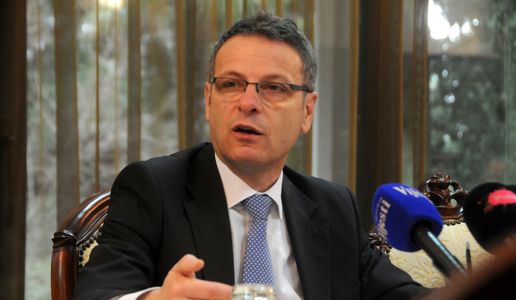Garcevic Interviewed on the Volatile Balkans
Ambassador Vesko Garcevic, Professor of the Practice of International Relations at the Frederick S. Pardee School of Global Studies at Boston University, was recently interviewed for several articles on the current situation in the Balkans after the failed name referendum in Macedonia, the proposal of territorial swap between Serbia and Kosovo, the growing economic and financial influence of China and the strong presence of Russia.
Amb. Garcevic was interviewed for an October 14, 2018 article by the Montenegrin News Agency Mina and MNE daily Vijesti entitled “The Volatile Environment in the Balkans is Further Convoluted by Russia and China’s Interference.“
Additionally, Amb. Garcevic was interviewed for an October 14, 2018 article by Radio Free Europe/Radio Liberty entitled “Will the EU Draw a Lesson From the Macedonian Referendum?”
Amb. Garcevic’s comments are below:
The region is far from stable. There are many outstanding questions that burden us, and it’s interesting that as time passes these wounds do not heal. Ideas and political engineering that seemed to have been part of our past are getting back and they are popular again.
At the same time, the EU has been absorbed by its own challenges such as the Brexit talks or the migrant crisis. The Balkans is perceived as a periphery. It’s an important European region but still the EU periphery. Under current circumstances, the periphery is given little or no intention. The enlargement is very low on the list of EU priorities. It’s why the EU engagement in the Western Balkans is not sufficient and often lacks political commitment.
The least preferable option for Brussels at this moment is another crisis in the Balkans. Therefore, Brussels seems to agree (acquiesce) with projects and ideas from the Balkans (such as the exchange of Kosovo / Serbia territory) which would be dropped a few years ago.
During his diplomatic career, Amb. Vesko Garcevic dealt with issues pertinent to European security and NATO for almost 14 years. In 2004, he was posted in Vienna to serve as Ambassador to Organization for Security and Cooperation in Europe. He had been a Montenegro’s Ambassador to NATO from 2010 until 2014 and served as a Montenegro’s National Coordinator for NATO from 2015 until he joined the faculty at the Pardee School.
